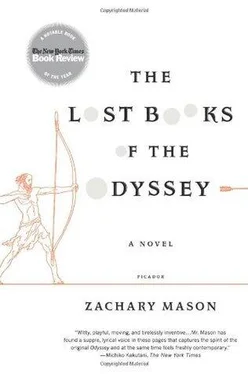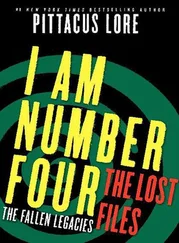Achaea’s old soldiery
Charmed out of time we see.
No life on earth can be
Hid from our dreaming. *
When the reef was well behind us the men unbound me. Making an effort to appear self-possessed, I told them that I had not had time to hear quite all and that we must go back. The men looked at each other sidelong, shuffled their feet and avoided my gaze. I cursed them, called them disobedient dogs whose lot was to obey, not to question. Reluctantly, they did as I asked, replacing the wax in their ears, rebinding me to the mast and retracing our course. They anchored the ship within bowshot of the monsters and stood guard by the rail with arrows nocked and spears lowered.
The sirens regarded me and said nothing. They beckoned with their strange hands and smiled (I wondered how they managed not to cut their tongues with such long, sharp teeth). I pled with them, begged, fulminated. They might have been amused. Soon they lost interest and lay down to sleep on their beds of twisted black basalt. A nervous crewman released an arrow that clattered on the rocks before ploughing into the sea.
The men conferred among themselves by signs, then weighed anchor and took us away, leaving me bound to the mast. I bellowed at them to turn back but they ignored me or pointed to their ears with exaggerated incomprehension. We sailed at good speed all day and left the sirens far behind us.
They freed me by torchlight. An order was on my lips but I saw mutiny in their deliberately blank faces and went to sit in the back of the ship, looking out over the flat moonlit sea and thinking of the sirens sprawled languidly under the stars, arms entwined, singing quietly to themselves over the hissing of the waves.
*Presumably the author means that Priam could have saved his city by violating guest friendship and giving up Paris to the Achaeans.
*This is identical to the text of the sirens’ song from Book Twelve of the standard Odyssey .
18. THE ILIAD OF ODYSSEUS
I have often wondered whether all men are cowards like I am. Achaea’s flower, the chosen of Ares, disciplined, hard-muscled men who do not know what fear is — all a fraud, a conceit for bards and braggarts that has nothing to do with the vapid squalor of war.
I have no talent for martial arts. I was the despair of the arms master but I was the heir and to his sorrow he was in no position to give up on me. When I dropped my practice sword, hit myself in the head with my spear or broke down in frustrated tears, he would smile grimly and with forced good cheer say, “ Anyone can learn to fight with enough application.” And, lo, the good man was right — despite my clumsiness, fat, stiff muscles and inclination to cry under stress I did eventually attain a modest standard of skill at arms, thanks mostly to my father watching our practices and encouraging the master to beat me bloody if I gave anything less than my absolute best. And beat me he did, and often, though to his credit I do not think he relished it. After a whipping he would help me up, dress my wounds and say, “Sorry, boy, but it’s your father’s orders and you’ll get worse than that when you go to war.” I dreamed of coming into my title and having him flogged and enslaved.
The exception to my general military ineptitude was with the bow, at which I excelled. When I pulled the string the world became quiet and I was aware only of the target, which I regarded with interest but no malice as my arrow all but invariably found its mark. Unfortunately for me this only exacerbated my reputation for effeminacy — as it allows one to strike from safety, the bow is a coward’s weapon, the sort of thing used by nomads and Asiatics. I could shoot rooks in the eye at a hundred paces all I liked and still be despised.
My shameful aptitudes did not end with archery — I was also articulate. I have never been at a loss for a tale, lie or synonym. I could recite the epic of Hercules after hearing it just four times. I was ideally suited to be a bard, a profession fit only for villeins, wandering masterless men who live at the pleasure of their landed betters, as my father reminded me when I broached the idea. He and his men would say things like, “We are here to live the stories, not compose them!” Sing, Muses, of the wrath of godlike shit-for-brains, hereditary lord of the mighty Coprophagoi, *who skewered a number of other men with his pig-sticker and valued himself highly for so doing.
When I was twenty, Agamemnon the High King came to the island to raise an army. His brother’s wife had preferred a sloe-eyed prince with a palace to her lawful husband, a Spartan king who lived in a mud hut and slept with his pigs for warmth. Privately, I saluted her common sense.
My father volunteered me to lead our troops. Age was slowing him down and he had lately been transferring more administrative responsibility to me but I hadn’t expected to be war-leader so soon. I had been making a point of carrying myself as I thought a battle-hardened hero would, loudly scorning danger, and though I thought my act was transparent enough for a child to penetrate, it seems I had convinced both my father and the men in the guard — they gave a cheer when they got the news and immediately started divvying up old King Priam’s daughters and treasures.
Refusing to go to war was impossible. The only excuse would be madness or infirmity, and it would have been very suspicious if I were struck by a terrible disease just when it was time to sail. At this point a man of the common run would have realized the situation was impossible and bowed to fate but my cowardice made me capable of the extraordinary.
My father threw a feast in the High King’s honor and I got my first good look at him. I knew his reputation as a warrior but in his face was a willfulness such as I had never seen. He looked like a man who would lash out with all his strength if crossed even minutely.
I played the part of the young-buck-keen-to-make-a-name for all I was worth. How eager I was to leave boring, quiet Ithaca, see the world, win renown by feats of arms and so forth. Looking distant for a moment, I said, “And Troy is a long, long way away? If a man took ill there I suppose he would have no option but to stay and fight?” and darted a quick, inquisitive look at Agamemnon. Palamedes, Agamemnon’s lieutenant, a bald, silent man who thought much and spoke little, looked at me as though I had suddenly become interesting.
After a few minutes I made myself look as ill as possible and made my excuses. I went out, closed the door behind me, and, taking a deep breath, fell down thrashing, my heel hammering against the floor. The door opened — there were Agamemnon and Laertes, Palamedes and the arms master, all the men I had grown up with looking down at me as I writhed on the ground, saliva dribbling down my chin. Through my convulsive chattering I growled, “Close the door. Close the door!” Abashed, they did, leaving me to complete my fit in private. After a minute I desisted, sick with relief.
The next morning I showed up for arms practice as usual, face ashen, very grave. Father was there, nearly unmanned with grief — his son was damaged goods, all but unmarriageable and not fit for battle. Agamemnon clapped an avuncular hand on my shoulder and asked me how I did, and Palamedes asked if I ever felt the touch of god when the fits came on me. I knew that seizures were often preceded by epiphanies, so I reluctantly admitted that I did — sometimes, I told them, it was as though Pallas Athena herself spoke with me while my spell played out, whispering secrets in my ear. It was the first thing that came to mind. I had their rapt attention, which made me confident and, like a fool, I embellished on my intimacy with the god. Agamemnon smiled and I was horrified to see in his face an emotion I had thought alien to him — generosity. “My boy, your luck is in. Palamedes here was telling me about the warrior Laon, who suffered the same disease you do, but it never slowed him down, not for a moment. So you see, there is no need to be concerned. And I’m even told it’s lucky, the god’s-touch disease. And for this campaign I believe we’ll be needing all the luck we can get, ha ha!” He clapped me on the shoulder again and went off to see about his ships. Palamedes smiled at me before following him and I decided that if I got the chance I would kill him.
Читать дальше












